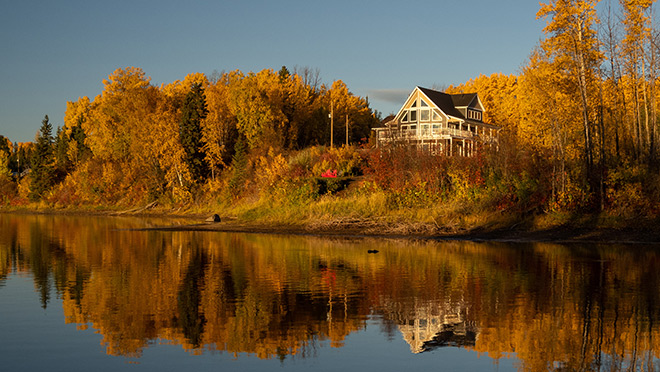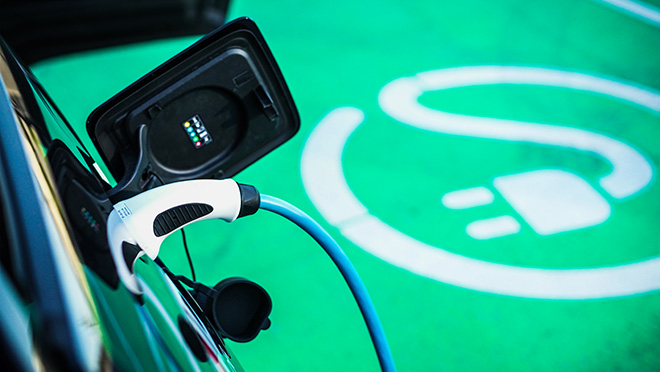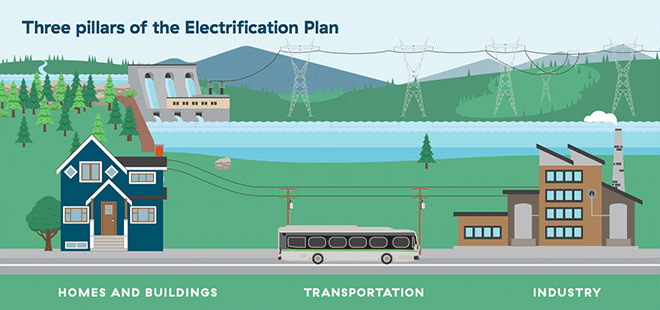It's a great time for contractors to embrace home electrification

Demand for home heat pumps and electric vehicles (EVs) creates opportunities for proactive contractors
Part 3 of our series on the BC Hydro Electrification Plan looks at residential program rebates.
When a recent help wanted ad from a B.C. HVAC company ran on network TV, it was another reminder of just how much work is going on in the homes of British Columbians.
"Contractors we talked to last November and December expressed that there was enough demand out there to each put 10 more trucks on the road," says BC Hydro's Kari Montrichard, a residential senior program manager. "But there was just no workforce capacity to meet that demand."
Residential rebates for heat pumps and Level 2 electric vehicle chargers have helped spiked demand for renovations and fuel-switching upgrades linked to our Electrification Plan. And contractors are clearly scrambling to keep up. While those installations aren't core to what the Alliance is about, Montrichard is urging Alliance members to educate themselves, and anyone they know, on the new technologies.
"I think there are just misconceptions out there around heat pumps," says Montrichard, echoing the conclusions of our recent report on heat pumps in B.C. "There are products out there that can provide heat down to -25°C, and there are installations of heat pumps in the north that people need to know about.
"We're also trying to help the customer by making changes to the language we use when talking about heat pumps, to make it easier to understand the technology, and by constantly updating our product lists to better reflect what's available."
One of the big challenges is in convincing business and residential customers that the initial capital costs involved in switching to heat pumps and EVs – such as the significant investment required for an apartment building to set up EV charging – will pay off. It's about making the case, armed with rebates to take some of the sting out of those initial costs, for the long-term benefits of making the switch.
Meanwhile, supply issues exacerbated by the COVID-19 pandemic and a computer chip factory fire in Japan last year have also proved challenging. Helping ensure a supply of heat pumps that can heat in colder regions in B.C., for example, is on our priority list, as is training of contractors to install them. We understand from our conversations with industry that supply will be returning to normal by the fall.
"We really need to work on contractor buy-in, too" says Montrichard. "Contractors in B.C. have been installing natural gas appliances for decades, so there's a belief in that technology. They'll wonder 'Can this heat pump actually heat a home, because I don't want callbacks if a heat pump isn't doing the job when the weather's really cold or hot.'"
And the answer is yes. A heat pump can heat a home if its properly designed to the climate where the homeowner lives.
Key to the Electrification Plan are rebates of up to $11,000 for heat pump installations when BC Hydro, Clean BC and federal rebates are combined. And electric vehicle rebates now go beyond the combined provincial/federal up-to-$8,000 rebate for the purchase of a qualifying new EV. There are rebates for the purchase and installation of Level 2 chargers at homes, apartment complexes, and workplaces, and a suite of EV ready incentives for charger planning and infrastructure upgrades in the parking areas of multi-unit buildings.
BC Hydro's electrification program manager Hansi Liu-Atkinson says that the Electrification Plan will remain a driving force behind rebates.
"It's an exciting time, and Alliance members play an essential role in making sure customers have the support they need to make the right decisions," said Liu-Atkinson.
Need more information about the rebates? See our information on electric vehicle and heat pump rebates. And training opportunities are available under the Home Performance Contractor Network (HPCN), which is replacing what's been known as the Program Registered Contractor initiative.
Electric baseboard to electric heat pump a success
Montrichard says that, overall, contractors on Vancouver Island have earned our confidence as they've acquired the skills to enable a home heating revolution of sorts, with more than 10,000 Island customers switching from electric baseboard heating to heat pumps.
The trick now, says Montrichard, is to get the same buy-in with contractors in the Lower Mainland and the B.C. Interior since heat pump rebates have expanded to include up to $17,000 in rebates (when federal and municipal rebates are included) for those who switch from fossil fuel heating.
Our surveys show that the cooling ability of heat pumps is proving to be the leading reason customers are making the switch to heat pumps. But while the air conditioning component is an important draw, customers can use their heat pump to efficiently and effectively heat their homes during the winter months.
Asked why it is that Norway and other Scandinavian countries have been so successful at convincing homeowners to install heat pumps – there are reportedly 600 heat pumps for every 1,000 homes in Norway – Montrichard says it's really because those countries got a jump on offering incentives and educating the public.
"I believe they've just been in the game longer in terms of fossil fuel switching," she says. "We've done lots of electric heating to heat pump rebates mostly on Vancouver Island for years, but rebates for fossil fuel switching to a heat pump is only three years old."
The number of program registered heat pump contractors in B.C. is growing, however. There are now more than 55 contractors across B.C. currently registered with the Home Performance Stakeholder Council who have been trained on the best practices of installing heat pumps.
With its stated goal of becoming the greenest city on the planet, the City of Vancouver has taken the lead on heat pumps by requiring – as of January 1, 2022 – all space and water heating equipment for new low-rise housing in Vancouver to be zero emissions. As bylaws emerge in other communities, and rebates continue, Montrichard sees a great opportunity ahead for contractors.
"We're really encouraging education around heat pumps and other technologies, as many contractors may have never installed a heat pump before, done a heat load calculation and everything else that's involved," she said. "But first, we need the contractor engagement and belief that the technology can work."


